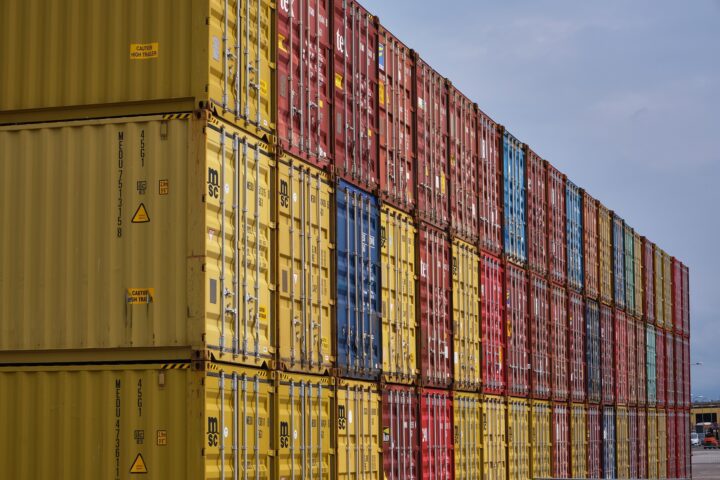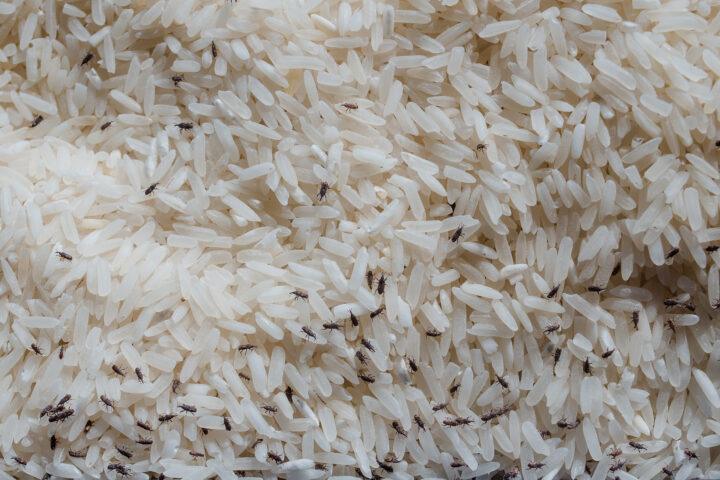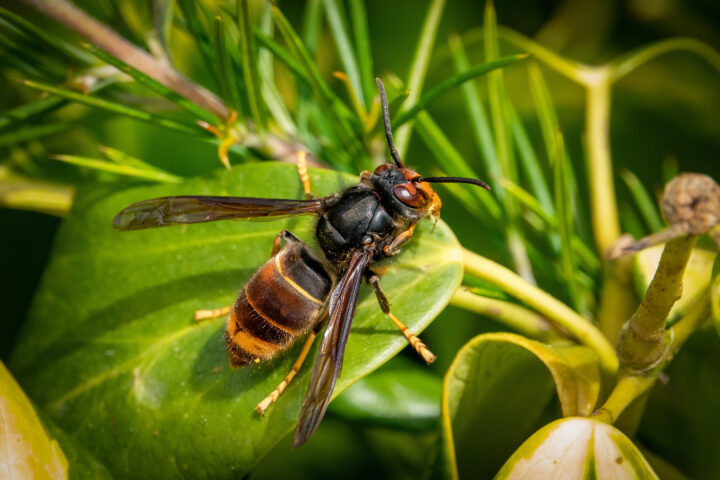
Why cutting out synthetic pesticides will reduce food production
The UK’s action plan to reduce pesticide use could backfire, warns agronomist Greg Dawson: overly strict regulations may make domestic farming unprofitable – and increase the United Kingdom’s dependence on imports.
Tuesday, November 11, 2025
Following the launch earlier this year of the UK Pesticides National Action Plan, with a strong focus on reducing the use of pesticides in crop production, agronomist Greg Dawson highlights concerns that by focusing too narrowly on arbitrary reduction targets, without considering their real-world implications, policy makers may unintentionally make growing food in the UK less sustainable – practically, economically and environmentally. If the restrictions go too far, it will make primary production in the UK unviable. The result will be more dependence on food imports, and less control on all aspects of production – including the use of chemistry, he warns.
In March, the four UK nations launched the Pesticides National Action Plan (NAP) 2025. The general thrust is that pesticide use needs to be reduced for the environment and for human health.
While it recognises that farmers need these tools to grow food, and underlines the merits of Integrated Pesticide Management – or Integrated Crop Management (ICM) – the approach set out in the plan misses some critical points.
By focusing too narrowly on chemical reduction targets without considering their real-world implications, policy makers may unintentionally make growing food in the UK less sustainable – practically, economically, and environmentally.
Recent experience
We’ve seen in Denmark, for example, how measures aimed at reducing the use of plant protection products (PPP) can have unintended consequences. The introduction of a pesticide tax, in addition to an already stringent regulatory process, disincentivised the use of the multisite fungicide Mancozeb for the control of potato blight.
As a result, strains of the fungal disease emerged that were more aggressive and adapted to overcome plant resistance, and also compromised the activity of some of the remaining fungicides. In some cases, crops failed to achieve a marketable yield, which is the worst outcome for both environmental and economic sustainability.
These more virulent strains have now spread throughout the northern European potato producing area, placing even greater pressure on ICM plans.
In the UK, the reorganisation of PPP regulations post-Brexit resulted in the removal of the only remaining options for grass weed control in winter oats, a crop that has a great health story for Scotland. A swathe of our farmer members stopped growing them in response.
Follow the latest news and policy debates on sustainable agriculture, biomedicine, and other ‘disruptive’ innovations. Subscribe to our newsletter.
Integrated Crop Management
But it’s not just the removal of singular products that’s the problem. It’s the overarching principle that if you take out chemistry, you remove one leg of the stool. ICM is a strategic approach with multiple tools that rely on each other. While the Pesticide NAP promotes ICM, the clue is in the name – ‘integrated’. Ongoing product withdrawals and regulatory constraints are eroding growers’ ability to fully utilise one suite of tools effectively, and that inevitably has consequences for the others too.
Crop rotation, varietal choice and drilling dates are all key components of ICM but their effectiveness in reducing weed, pest and disease pressure is supported and protected by the use of plant protection products and, critically, multiple modes of action.
What was achieved by the ‘green revolution’ in the mid-20th century should not be overlooked – plant breeding together with judicious use of chemical fertilisers and pesticides has dramatically increased yields, improved living standards, fed growing populations and suppressed food prices.
No responsible producer would support unfettered use of synthetic inputs, but they have played a key part in the development of modern, sustainable crop production, and still have an essential place today.
And we’re doing a good job in the UK. Between 1990 and 2020, the use of synthetic inputs in UK crop production declined by 60% while global use in the same period increased by 90%.
A realistic policy for sustainable agriculture
If the ambition is to remove or greatly limit PPP, policy makers must accept that marketable yield per acre will be less, and that this will have consequences: more land will be required to maintain production – and taken out of ‘nature’ – and consumers will need to pay more for UK produce.
If this increases imports by default, the result will be less control on all aspects of production – including the use of chemistry.
The co-operative Untied Oilseeds has highlighted the production of vegetable oil as an example of the combined effects of eroded food security and ‘offshoring’ the consequences of affordable food production. Rapeseed oil accounts for around 40% of UK vegetable oil consumption. In 2013 there was a complete ban on neonicotinoid insecticides in the domestic oilseed crop because of their potential to cause harm to bees.
Prior to the ban the UK was self-sufficient in rapeseed and was an important exporter. Post ban, the yield and planted area have declined significantly because of uncontrolled pest pressure. This could be viewed as a price well worth paying to completely remove from producer’s toolbox a potential harm to bees. However, the reality is, of course, more complex. The UK is no longer self-sufficient in rapeseed, and major suppliers include countries where the use of neonicotinoid insecticides has remained legal through regulation or emergency derogation – an entirely unsatisfactory outcome for either side of the debate on managing risk through controlled use versus an outright ban.
After oilseeds, palm oil is the next most consumed edible oil in the UK. There are complex trade-offs involved in high output food production in developing countries whose land could also support the enormous biodiversity of tropical rainforests. There are very few easy wins for policy makers or the consumers they serve without resorting to NIMBY-ism.
While we wait for the next ‘green revolutions’ – like gene editing and biological inputs – to prove themselves in the field, agronomists and growers will continue to refine agronomic practices and optimise production…using the ‘old’ tools of crop rotation, conventional plant breeding, soil health, crop nutrition and, of course, chemistry. We will use them as efficiently and effectively as we can – for the benefit of people, planet and profit.
Farmers generally have become hardened to the fact that the toolbox is being constantly squeezed, and each new policy and plan will take away another input they rely on to produce food at scale. But if it goes too far, it will make primary production in the UK unviable or unattractive to be in.
We can’t throw the good tools away
No other industry would scrub the innovation and technological advances it had made and expect to continue progressing.
As a sector, we’re not always good at pointing out the reasons for PPP but there needs to be greater cognisance of how pesticides contribute to all three aspects of sustainability. We, and other stakeholders, also need to remember that agriculture can never be truly ‘sustainable’ unless it is providing food security, farmer viability, and resilience in the face of climate, pest, and market volatility.
That means that agricultural policy can only be sustainable if it includes realistic, resilient crop protection strategies. And that requires maintaining access to a range of effective tools, accelerating the development of effective, low-risk alternatives, and supporting technologies like gene editing that can reduce reliance on pesticides in the long term. But until those innovations are field-ready, farmers need workable, science-based options – not just aspirations and arbitrary reduction targets.
This article was written by Greg Dawson, Deputy Managing Director of independent farmer-owned agronomy co-op Scottish Agronomy, and was published in Genetic Literacy Project on 5 August 2025 in English.
Related articles

"Pesticides damage the climate."
Pesticides are bad for the climate? No, the exact opposite is true. Plant protection products help to produce more food on less usable space and thus protect the soil.

Is the industry exporting banned pesticides?
NGOs and the media repeatedly report on Swiss manufacturers of plant protection products who export pesticides that are banned in Switzerland. They claim that weak regulations in the importing countries are being deliberately exploited. However, this is not the case. Swiss manufacturers adhere to strict international standards when exporting plant protection products. Since approvals are also tailored to agronomic needs, the crops grown and the market, regulation from Switzerland makes no sense.

Pesticides in Water: The sources are more varied and closer than we think
A new national study reveals that pesticide contamination in Swiss rivers and streams has more complex causes than previously assumed. While substances still originate from agriculture, a considerable share enters waterways through other pathways.

Approval studies for plant protection products are science-based
The approval of plant protection products in Switzerland is subject to strict legal requirements. Ultimately, this approval process is based on scientifically sound studies. These studies are financed by manufacturers, but they must comply with clearly defined governmental requirements and controls. The aim is to ensure reliability and independence.

Grain beetle eats its way through Swiss grain stores
The grain beetle is spreading in Swiss grain stores. Introduced via international trade, it threatens harvests and impairs food quality.

New problem: soft bugs, native pests discover fruit and vegetables
Soft bugs are spreading at lightning speed in fields and greenhouses in southern Germany. These pests are destroying fruit and vegetables and pushing agriculture to its limits. Effective plant protection products must be found urgently to safeguard harvests.

Three times more Asian hornets – biocides needed
The Asian hornet has been a threat to the native honeybee for several years. The situation continues to worsen. As new figures show, there were almost 4,000 sightings last year – a threefold increase in the number of Asian hornets. The pest is attacking biodiversity. Politicians are also alarmed.

